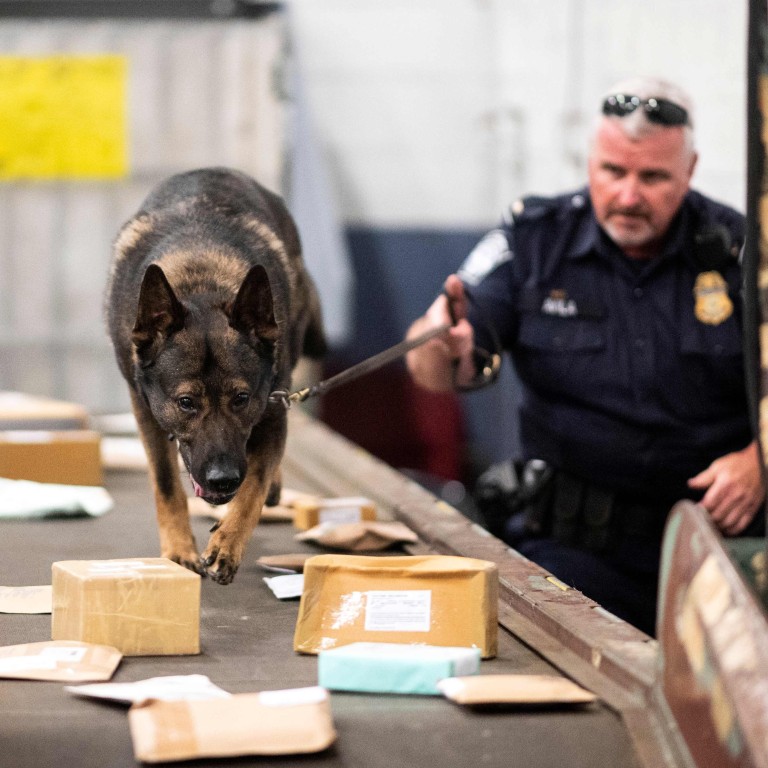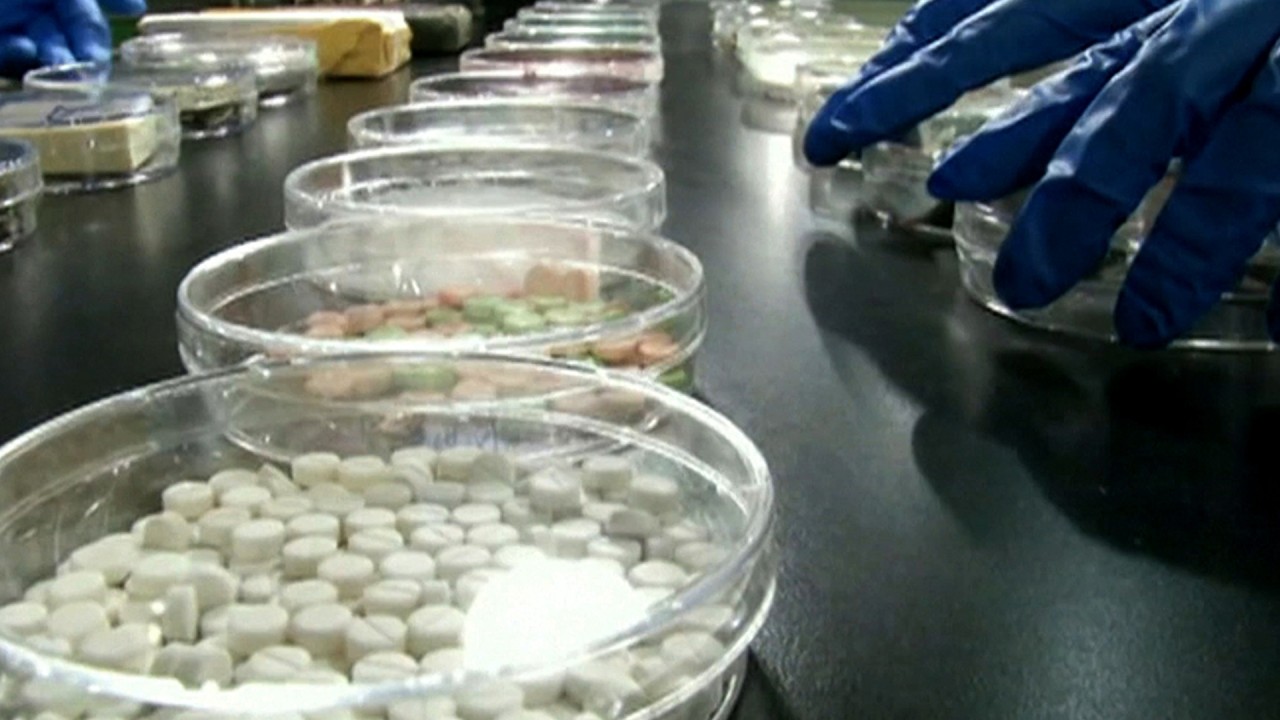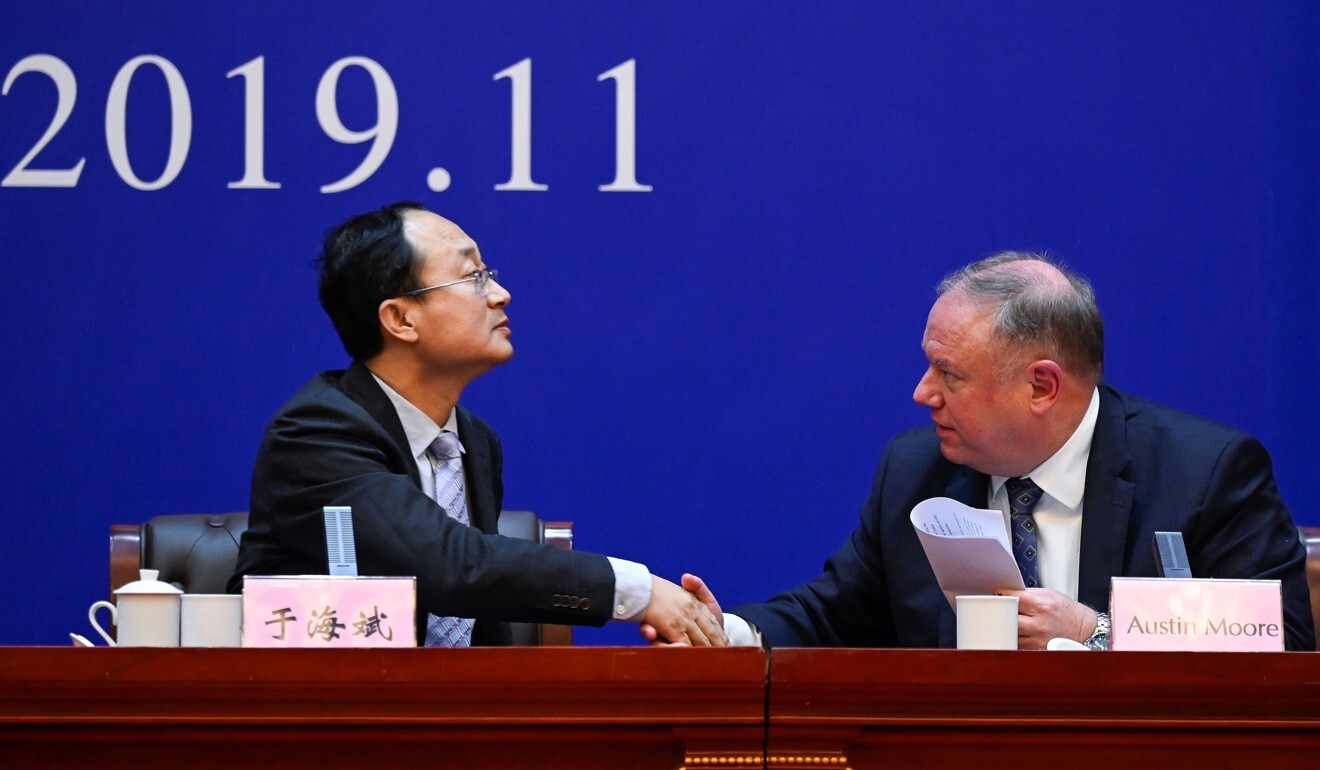
China has failed to cut its fentanyl trafficking, US congressional panel finds
- ‘China remains the primary country of origin for illicit fentanyl and fentanyl-related substances,’ US-China Economic and Security Review Commission says
- Rather than ship directly into US, Chinese manufacturers now send raw materials to Mexico, where cartels make the drug then deliver it across the border
Beijing has so far not lived up to its promises to stanch the flow of the deadly synthetic drug fentanyl from Chinese chemical factories into the US, according to a report Tuesday by a congressional advisory panel.

But many of the drugs are no longer being shipped directly from China. Instead, the report said, China is sending raw materials to Mexico, where cartels manufacture them into fentanyl and deliver them into the US.
The report comes more than two years after Chinese leader Xi Jinping pledged to former US president Donald Trump that authorities in China would crack down on the production and distribution of fentanyl – a drug 50 times more potent than heroin, according to the US Drug Enforcement Administration. At the time, the White House called it a “wonderful humanitarian gesture”.
Trump plans call to Xi Jinping – and says China will get tough over fentanyl
Authorities in China have taken some action since then, the report found: “ramped up investigations of known manufacturing sites, cracked down on websites selling illicit fentanyl, begun to enforce shipping rules and created special investigation teams.”
But it also says that regulation and enforcement of China’s “vast chemical and pharmaceutical industries remain weak”.
The Chinese embassy in Washington did not immediately respond to a request for comment.

01:22
China to ban all fentanyl variants
The USCC report said that Chinese actors are working increasingly closely with drug cartels in Mexico.
“Drug producers and smugglers in China are becoming more sophisticated in evading Chinese and US authorities,” it found, “and the growing involvement of Mexican cartels and advanced money laundering schemes have exacerbated the problem.”
“As Chinese traffickers sought to evade the Chinese government’s increased regulation in 2019, Mexican cartels looked to maximise their role in the illicit fentanyl trade,” it said, noting that direct fentanyl shipments from China to the US have declined, but that shipments from Mexico have increased.
Those caught in US fentanyl crisis say solutions lie at home, not in China
The report said that US-China cooperation on fentanyl has improved – a rare area of collaboration between Washington and Beijing as their relationship continues to worsen – but that “serious gaps remain”.
Several US federal agencies have testified in the last two years that Chinese authorities have cooperated with Washington in cracking down on the fentanyl supply chain.
But the report found that “cooperation lags in money-laundering investigations, criminal prosecution and legal assistance in ongoing cases”.
“Chinese regulatory authorities continue to delay requests for access to inspect and investigate potential sites of illegal chemical production where precursors are made,” the report said. “Requests are often delayed for days, allowing any illegal operation to vacate or clean up the premises.”

Instead, the report advises lawmakers that the US should work with more countries than just China to stem the flow of drugs, because of the “more globalised nature of the supply chains”.
In particular, the report said, US law enforcement is concerned about the increasing production of fentanyl in India – a problem that could become worse, according to US authorities, “if China-based traffickers work with Indian nationals to circumvent China’s new controls on fentanyl”.
The report also expressed concern that another production centre could emerge in the “Golden Triangle” of Laos, Thailand and Myanmar.
“The region is also known to have limited drug enforcement and regulation and is already a major source for methamphetamines and other drugs,” the report said.

